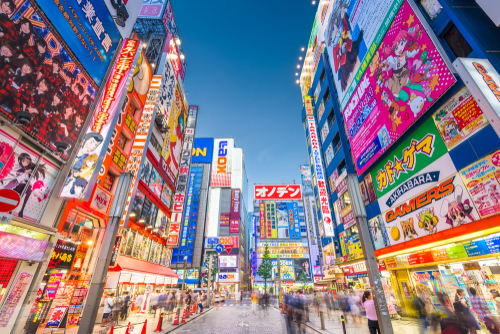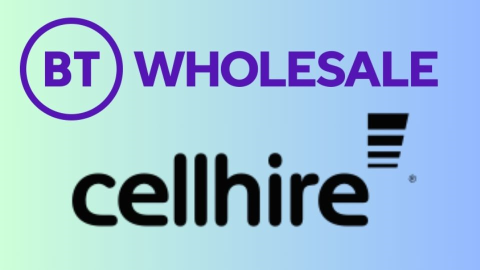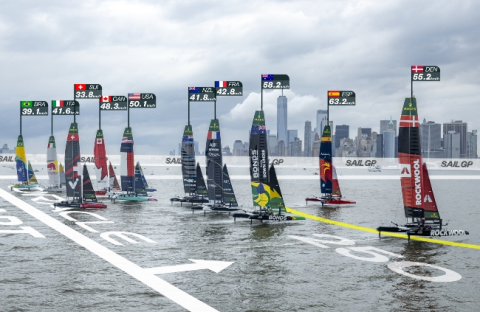

Exertis IT is embarking on a fresh journey following the acquisition by private equity firm Aurelius. Mobile News asked Exertis IT CEO Tim Griffin to unpack what the deal and explain what it means for the company.
The acquisition, announced this week, has been six months in the making. Griffin, who joined Exertis owner DCC in 2018 after 14 years with Dell, likened the process to announcing a marriage before the courtship is complete, reflecting the gradual build-up to the final deal.
“Since DCC’s decision last November to divest certain technology assets, including Exertis IT, things have really accelerated, especially this year,” he said.
Griffin added, “It’s come about very gradually and then suddenly, as I like to say.”
The sale is part of DCC’s broader strategic refocus on its energy business, with technology assets being reviewed and sold off in stages. Exertis IT represents the largest of these divestments so far.
Contenders
Regulatory approval by Q4 is expected to be a formality. While trade buyers might face more regulatory scrutiny, Griffin explained that financial acquisitions such as these,typically encounter fewer hurdles. Still, the deal requires regulatory approval from European authorities due to the cross-border nature of Aurelius’s portfolio and Exertis’s UK and Ireland operations.
There had been several suitors but Aurelius “reallyi aligned with our values and bought into the three-year vision we have for Exertis”, he said.. The feeling seems to be mutua.: Andrzej Cebrat, Managing Director Aurelius says: “Exertis in the UK and Ireland ticks all of Aurelius boxes with £2bn in annual revenues it is an attractive size, and it offers significant operational improvement potential
Brand and Strategy
Aurelius’s acquisition includes the Exertis brand, which will remain a key asset. Griffin confirmed that while some parts of DCC’s technology portfolio will decouple and move away, Exertis IT under Aurelius will continue to leverage the brand. “Ultimately, the brand will reside with Aurelius,” he said.
Strategically, the company plans to double down on its core strengths, focusing on market segments where it is already number one or two. These include mobile, AV components, retail, and IT solutions.
“We want to focus on specialist activities where we can excel and grow sustainably, rather than trying to do everything,” Griffin said.
“We are investing to fuel growth and reallocating resources rather than cutting our way to glory,”
Exertis has developed a strong position as a leading Android distributor in the UK and Ireland, committed to both enterprise and retail customers. “Mobile is not in any way stagnating in the long term,” he added.
He says Aurelius will also bring operational support through embedded leadership and specialist teams to help accelerate Exertis’s growth trajectory. “They have a raft of functional and vertical strategic capabilities that we will take full advantage of to drive and accelerate growth.”

Indeed Aurelius will be deploying its WaterRise team of specialists to “support a return to operational excellence and growth” said Cebrat.
Reactions
The acquisition announcement was made public before direct communication with customers and vendors, due to market sensitivity and regulatory rules. Griffin reported a positive reaction from all stakeholders, who were eager for clarity and expressed strong support for the transition.
Internally, concerns about potential job cuts were addressed upfront. Griffin reassured staff that the acquisition was about growth, not cost-cutting. “We are investing to fuel growth and reallocating resources rather than cutting our way to glory,” he said.
Looking Ahead
Until completion, DCC continues to run the business as usual, executing on the existing three-year plan.
Griffin reflected on the transition with pragmatic optimism: “While change always brings ambiguity, I’m comfortable and excited about the opportunities Aurelius presents. DCC was a fantastic owner, but this new chapter is about investing in the future and unlocking potential.”
When asked about Aurelius’s typical investment timeframes, Griffin highlighted the variability, from short-term holdings of a few years to much longer investments. The focus will be on optimising value rather than a fixed exit plan. “Some of their holdings are single-digit years, others 15 or 20 years. It really depends on the opportunity to create value.”
Changing Market
As the distribution landscape evolves, particularly in mobile where brand portfolios have narrowed, Exertis IT’s ability to maintain leading positions in multiple segments will be crucial, he said.
Griffin is optimistic about the general mobile market despite current challenges such as narrowing brand portfolios of primarily Apple, Samsung, and some Chinese manufacturers and market saturation with slow growth in the UK and Ireland, where replacement cycles have lengthened, making growth harder for distributors.
His recent visit to Japan gave him confidence that innovation in mobile technology will continue to drive demand, and that Exertis aims to stay at the forefront. “It’s always interesting to see how technology evolves in big markets like Japan. We expect more innovation ahead.”

He is confident that, with Aurelius in charge by December Exertis IT will be well placed to leverage fresh capital, strategic expertise, and its strong market positioning to continue to grow in a complex and competitive environment.









